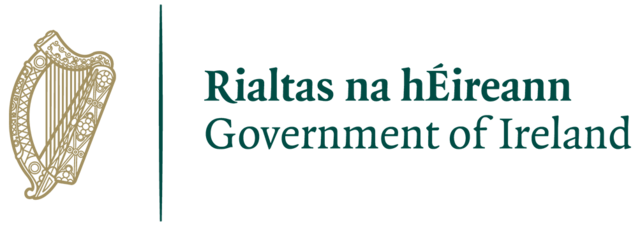Back in May as part of my course I completed a module called Media and Ethics in the Creative Industries and the idea was to come up with a bill that is already in existence or one that has not yet been thought of and create scenarios around which they could be seen used in. For example the bill that I had chosen was the Online Safety and Media Regulation Bill 2022. As when the bill was being researched it had only reached the third stage of the Oireachtas and has now progressed significantly to the seventh stage.
The Online Safety and Media Regulation bill was enacted to amend the 2009 Broadcasting Act and to allow for the establishment of a Media Commission that will oversee aspects of Media Regulation relating to VOD (Video On Demand) services and broadcasting services within Ireland.
The Online Safety and Media Regulation bill was published by Minister for Gaeltacht, Media, Arts, Culture Tourism and Sport Catherine Martin TD in December of 2020 and what the bill aims address is many areas of concern after the now lapsed Online Advertising and Social Media (Transparency) Bill 2017
The Bill deals with three main areas of concern. Parts one and two of the bill will establish a new regulatory Media Commission and an Online Safety Commissioner which will see the cessation of the Broadcasting Authority of which will become part of the new Media commission.
Part three of the bill addresses separate categories of online harm. This part of legislation looks at illegal content and specific categories of unlawful harmful content online. While the aforementioned categories of harm are provided for in big tech community guidelines, the platforms approach to self regulate their platform(s) are inconsistent and fall short of what should have been better managed.
The Media Commission under the bill will have enhanced powers to force compliance, sanction digital platforms and if necessary block online services. The Commission can also introduce and prosecute summary offences and fine tech platforms.
Expert Concerns
The Irish Council for Civil Liberties has concerns relating to the bill with regard to how vague the definition is for harmful content saying it will make it difficult for people to know when their behaviour could be subject to sanction. They also say that under the threat of sanction vague definitions of legal terms could lead to self-censorship.
The Irish Council for Civil Liberties say that overall the approach in the bill is problematic and presents itself as implementing an EU directive, they say that what it actually does is create vagueness and uncertainty to the law
Similar Laws

The UK has introduced an online safety bill to parliament on the 17th of March 2022. The bill was first introduced in May of 2021 and has since seen a raft of new changes made to further strengthen the existing draft bill. Changes since the draft bill include adding new measures to clamp down on anonymous trolls to give people more control over who can contact them and what they see online, Making companies take a proactive step in tackling illegal content and criminal activity quicker and making cyberflashing a criminal offence.
Similar But Different
In terms of how the UK’s online safety laws are different to that of Ireland albeit similar; new rules that come under the general outline of Ireland’s Online Safety and Media Regulation bill include but are not limited to updating current legislation with regard to how broadcasting services and VOD services are regulated, the bill also includes funding of the Media Commission which will eventually replace the BAI and will be responsible
For overseeing online safety and updated regulations for Video On Demand services and broadcasting. As it is Ireland has a very lackluster approach to social media and online safety particularly allowing social media companies/platforms to self regulate themselves with what they deem appropriate for their platform of business most of which goes without strict fines/ consequences for the platform.
Impact on Creative Industries?
The online safety and media regulation bill will fine tech companies that fail to follow the rules and regulations set out in this new bill and could potentially see that social media company such as Facebook, Twitter or any platform for that matter that falls under this bill have their services pulled from Ireland if it is a repeated offence.
The Minister for Tourism, Media, Arts, Culture, Gaeltacht and Sport Catherine Martin has said that the bill will include funding of five and a half million euro for the establishment of the new media commission that will oversee online safety and broadcasting among others once the commission is established. The funding will then be used to provide and build up regulatory capacity and expertise in online safety and media that falls under the commission’s allowance in terms of what it can do when it comes to Online safety and media regulation. It is hoped that the introduction of the new media commission will help strengthen the already existing Broadcasting Authority of Ireland of which will become a sub department under the media commission once it is established.
Conclusion
Overall the reaction to the online safety and media regulation bill is a positive one and is welcomed from all angles of society with a few small problems that can be fixed overtime and it is very much the right time to be introducing something like this as I believe it is needed, in fact i believe that it should have been something that was introduced a lot sooner than it has been as we have seen that up until now social media has been for the most part self regulated and somethings online have been let slip and people face little to no consequences to their actions, I hope with this new bill that individuals and organisations will be held to account when it comes to online usage and the use of social media in general, hopefully it becomes easier for creatives to let their creative juices flow without having content claims on videos for only using a small amount of a clip that falls under fair use.

This was originally published in August of 2022, the Bill has passed all stages since and is now implemented with comisiun na mean being the overall media regulator in Ireland. View the bill here
